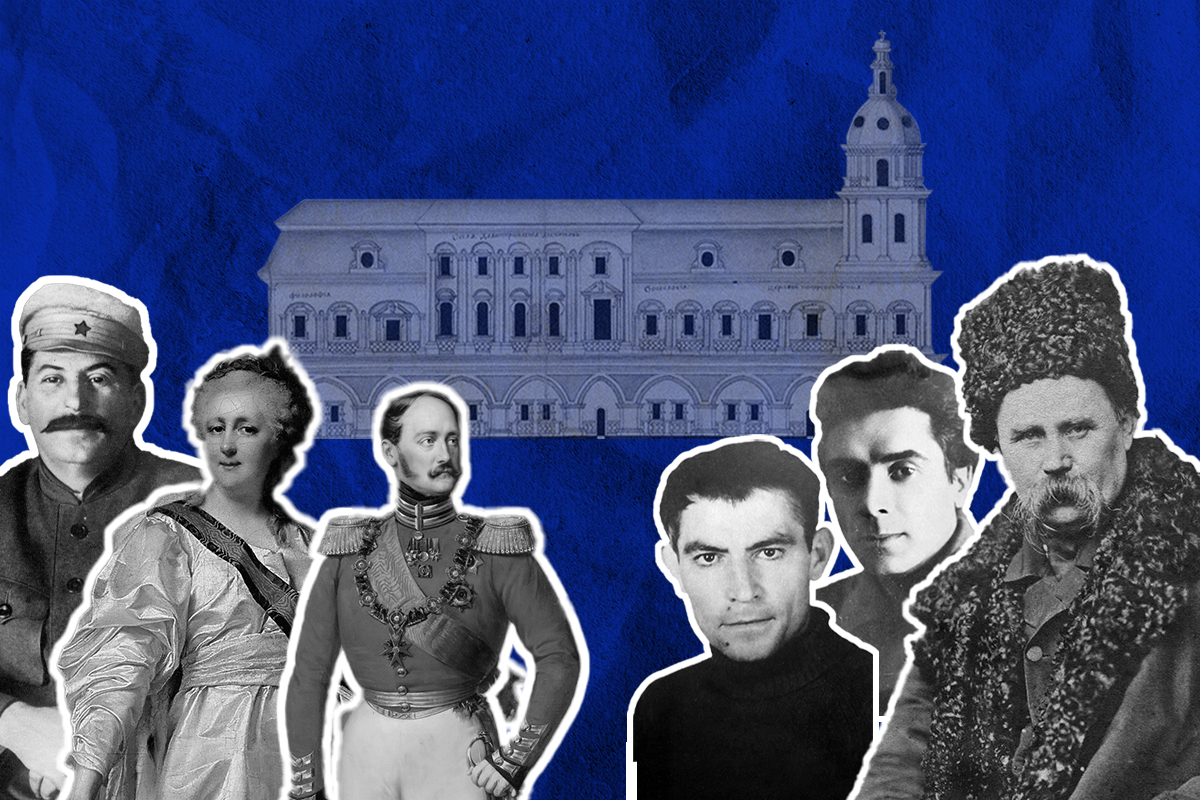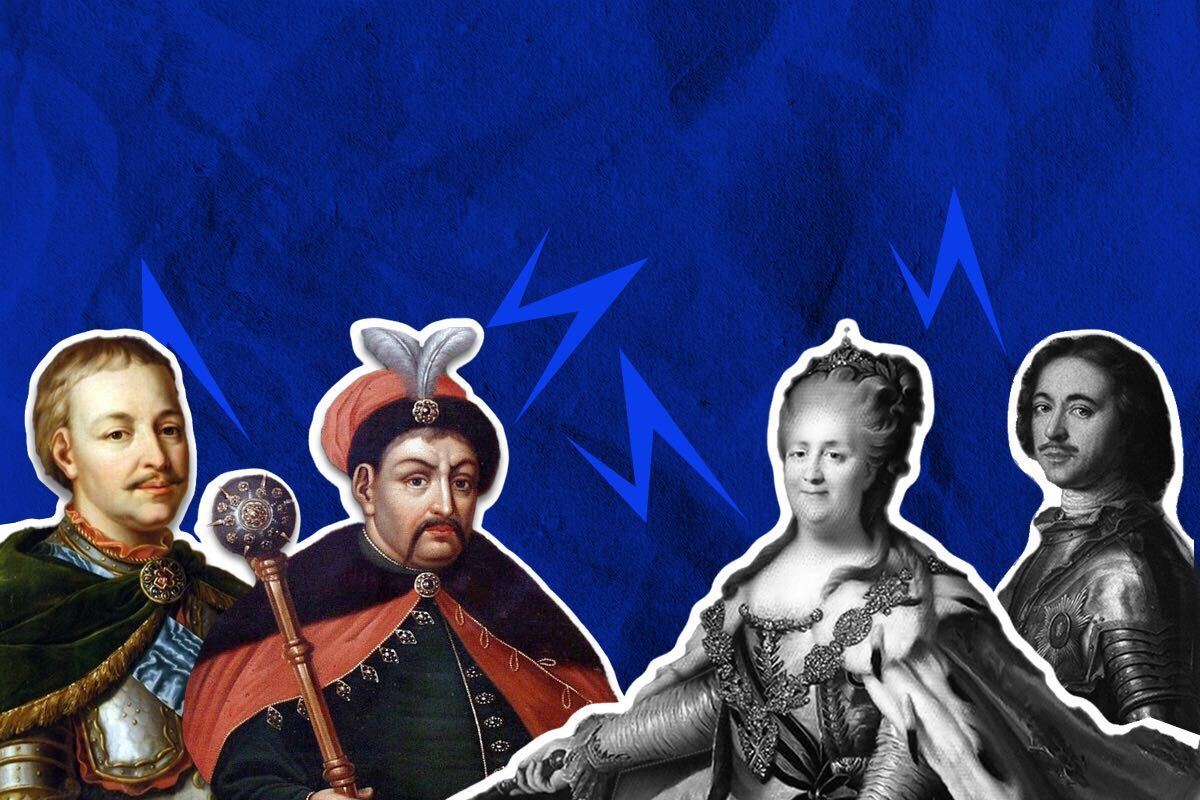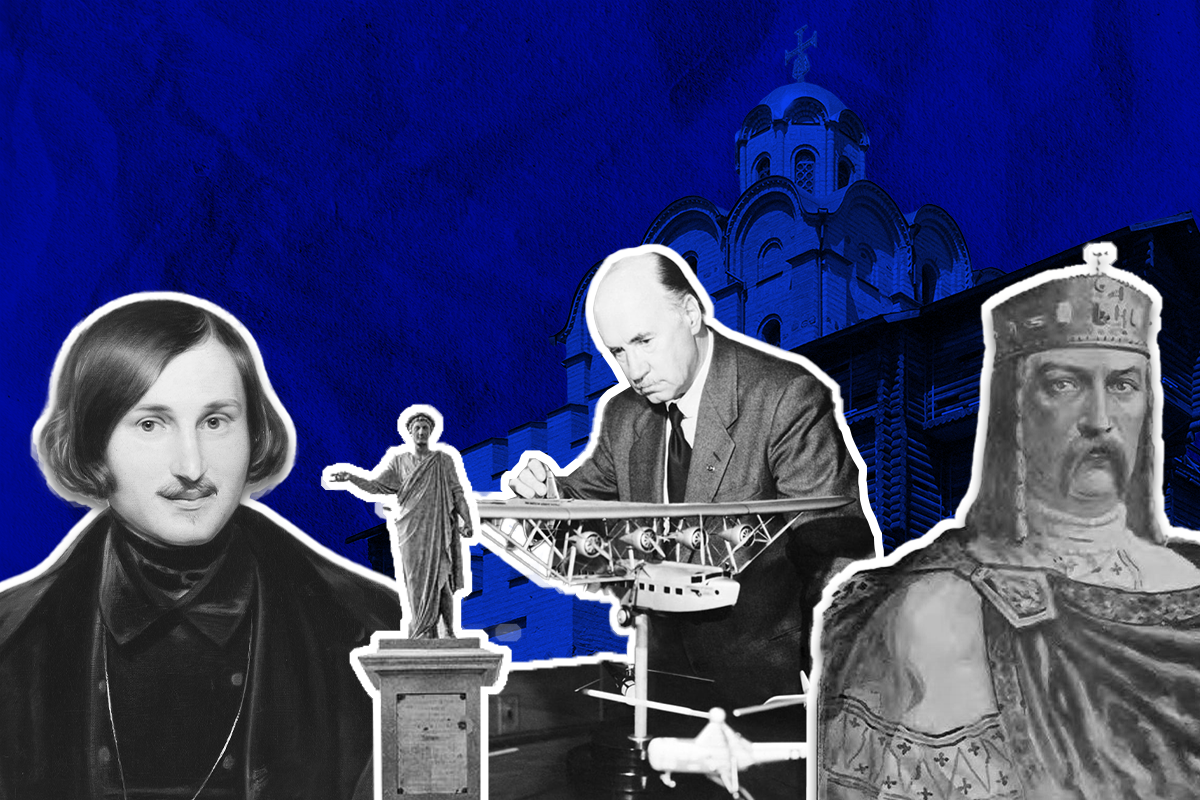Revolution, patriarchy, woe: A review of Oksana Lutsyshyna’s ‘Ivan and Phoebe’

The 90s is an overlooked period in contemporary Ukrainian literature – unlike Russia’s ongoing war against Ukraine – and the setting alone makes Oksana Lutsyshyna’s award-winning novel “Ivan and Phoebe” an achievement.
Now available in Nina Murray's English translation from the U.S. publisher Deep Vellum, Lutsyshyna’s novel is essential reading for those looking to better understand the factors that have shaped Ukraine's post-independence landscape, how they impacted ordinary people, and the challenges Ukraine continues to face today.
Ivan, the titular hero, goes from participant in the Revolution on Granite during his student days to husband in an unhappy marriage without much purpose in life. “Where is my fury? Why can I not subsist on that alone?” he asks himself. Like many of his peers, Ivan is part of a lost generation struggling to navigate the turbulent years of Ukraine's budding independence.
The Revolution on Granite took place between Oct. 2-17 in 1990. The Ukrainian Student Union, compelled by their dissatisfaction with the Ukrainian parliamentary elections held earlier that year, gathered at Kyiv’s Independence Square, known as the Maidan Nezalezhnosti in Ukrainian, and declared a hunger strike. Many now refer to it as “the first Maidan,” given that the Orange Revolution of 2004-2005 and the Revolution of Dignity of 2014 also took place there.
Not every protester was a student, nor did they all partake in the hunger strike, but their ranks rapidly swelled to the thousands in solidarity, with additional smaller protests sprouting up around and outside of Kyiv.
The participants of the Revolution on Granite had a set of demands and primarily wanted to thwart the signing of the New Union Treaty, which aimed to "preserve" the Soviet Union. While the revolution did not play a direct role in achieving Ukraine’s independence in 1991, it arguably shaped the country’s political climate.
Ivan travels to Kyiv to take part in the revolution. Lutsyshyna does not shy away from exploring the social tensions between Ukrainians like Ivan, who are actively fighting for change in their country, and those who continue to live under the influence of the Soviet "Moloch" – a reference to a demonic ancient deity associated with child sacrifice – keeping a low profile and remaining uninterested in anything beyond their personal lives:
“Neither the police nor the passersby could grasp why these young people were sitting in the middle of the square—were they just common hooligans? No one in the Soviet Union, young people above all, was allowed to have a political opinion other than the one of complete and total approval of the Party and the government. The young were supposed to obey their elders.”
Ivan and his peers, despite their unwavering commitment to the cause of Ukraine's national sovereignty, are also facing an additional challenge: coming to terms with their sometimes limited knowledge of Ukrainian culture and history, which is not only a useful but necessary tool for building an independent Ukraine.
This knowledge gap arises from the dominance of the Russian language and culture which were elevated above all others during the Soviet era. As a result, Ivan “burned with a sense of grievance, burned so hot he wanted to burst into sobs or punch a wall. How? Why? He knew nothing, he had been told nothing, he was never taught anything, anything at all. He had only been taught there was Moscow.”
As it is with any revolution, disagreements continuously emerge between the participants. Meanwhile, a fellow revolutionary confides in Ivan while on the Maidan that he fears not tanks or police brutality, but of the risk of failing to leave a lasting mark on history.
The means by which societal change can be achieved are also a topic of heated debate among pro-independence activists. In a meeting leading up to the revolution, the younger generation of Ukrainian activists is captivated by their elders who survived the brutality of the Soviet secret police and even internment in distant Siberian camps.
However, the brutality they witnessed firsthand also sparks discussions about the use of violence to achieve societal change, including self-immolation or hidden weapon caches. Others advocate for fostering connections with their fellow Ukrainians through more peaceful means.
While the late 1980s and early 1990s have often been described as a time of "freedoms" in Russia, pro-independence activists in Ukraine were targets of surveillance by KGB officers for so-called discretions as insignificant as owning what was perceived as “subversive” literature. In those times, pro-independence activists worried about informants infiltrating their groups, and threatening them and their loved ones. At one point in the novel, Ivan and the others learn of a friend who is reported to have fallen drunk out of a speeding train, despite knowing for a fact that he did not drink.
After the revolution, Ivan is tormented in Lviv by a former KGB agent who goes by the name of “Sashko Petrenko.” They first cross paths on the Maidan in Kyiv, and “Sashko” later attempts to weasel his way into Ivan’s life. Eventually, Ivan realizes that “Sashko” is not who he claims to be, but it’s already too late – he begins to follow him around like a second shadow.
The presence of “Sashko” becomes such a persistent menace in his life that Ivan isolates himself from friends, including his lover Rose, and immerses himself in fantasies about killing the informant to reclaim some semblance of control over his life. It is not entirely clear to Ivan – nor the reader – which organization “Sashko” works for, be it a criminal gang or the Russian security service. Regardless, he attempts to wear down Ivan and convince him to initiate him into Ivan’s circle of fellow Ukrainian activists, resorting to threats against Ivan’s mother.
At the point of mental collapse, Ivan retreats from Lviv to his native Uzhhorod: “He could still go home, instead of being delivered, like a piece of refuse, from some loony bin. Or as a bloody mess scraped off the pavement under a seventh-floor window. Or a body to be identified after being shoved off a speeding train.”
Although the sleepy Transcarpathian city does not offer him the same array of opportunities as Lviv or Kyiv, he relishes in the comfort of home, walking “the city that was supposed to be his perdition” and feeling, in his words, reborn. Uzhhorod, as depicted by Lutsyshyna, embodies the quintessential traits reminiscent of Ukraine in the 90s, including frequent power outages, frozen salaries, sketchy businessmen, and a thriving black market where wedding shoes could only be found in unconventional places, like a bookstore.
Ivan manages to secure a job working at a local bank, where he meets Maria, the daughter of the bank’s lawyer. A dark-haired and seemingly shy young woman, Maria adopts the name “Phoebe” for herself, drawing inspiration from Phoebus, the god of poetry. Despite having interacted with the literary scene during his student days in Lviv, Ivan is perplexed and amused by Phoebe’s desire to establish herself as a poet.
A romance soon develops between Ivan and Phoebe, and although Ivan has reservations about making a long-term commitment, he succumbs to the pressure of both their parents and agrees to marry her. His opinionated mother constantly reminds him that any man’s purpose is to settle down, find a wife, start a family, and build a home – a place he can proudly call his own “fortress."
That doesn’t stop Ivan from fantasizing about running away on their wedding day. However, an unexpected injury halts his plans. The days leading up to his wedding are a period of mourning where he must “drift along the flow of his own life,” and exchange the role of a young revolutionary wanting to make history for that of an ordinary, small-town family man.
Ivan and Phoebe’s relationship quickly begins to deteriorate. Phoebe objects to the patriarchal demands imposed upon her by her husband and mother-in-law, believing “that life should not do such things to poets.” Rather than pursue a literary career, she never ventures beyond the front yard of their shared home, caring for her child and fulfilling chores assigned by her mother-in-law, consequently becoming more and more withdrawn.
Ivan resents her for the need to assert her individuality: “For some reason he had become convinced that with the baby’s arrival Phoebe would become, like all his friends’ wives, a happily bustling homemaker who would have no more time for him (or her poems!).”
The reader is afforded little insight into Phoebe’s character from Ivan’s perspective – he is only interested in conveying his disappointment in her behavior. However, Phoebe attempts to unveil more of herself through monologues that disrupt the novel's narrative, albeit in a torrent of words that are overwhelmed by her desperate need to not only be seen but heard.
Meanwhile, Ivan begins to feel increasingly isolated. Several of his friends leave the country in pursuit of a better life, battle with substance abuse, or meet an early grave. He drifts from one job to the next and questions whether his time on the Maidan had any meaning, not to mention what it means to be a Ukrainian patriot.
After reconnecting with some of his fellow revolutionaries on a trip to Lviv a few years later, Ivan briefly entertains the idea of moving back to the city of his student days. However, he realizes that it would be impossible to do so without his wife and child and decides against it, fearing that Phoebe would find the happiness that she lacks in Uzhhorod and leave him. Despite the fact that they are clearly unhappy, maintaining their marriage is at least some form of agency.
The mounting tension within Ivan, driven by his uncertainty over the future and a persistent failure to articulate his needs – which would arguably grant him much sought-after control over the trajectory of his life – culminates in an unexpected and shocking climax, one that will undoubtedly leave a lasting impression on the reader long after they have finished the novel.
English-language readers have been introduced primarily to Ukraine’s contemporary male writers. While Serhiy Zhadan, Yuri Andrukhovych, Andrey Kurkov and others possess undeniable talent and wit, Ukraine’s female writers are particularly adept at delving into the depths of human psychology and unraveling the impact of historical trauma at an individual level.
The publication of Lutsyshyna’s novel in English translation will hopefully kick off a trend of introducing Western readers to more boundary-pushing, female-driven Ukrainian literature in the years to come.
“Ivan and Phoebe” is now available from the U.S. publisher Deep Vellum and can also be purchased from most major book retailers.
Note from the author:
Hi, this is Kate Tsurkan, thanks for reading this book review. There is an ever-increasing amount of Ukrainian books available in English translation, and I hope my recommendations prove useful when it comes to your next trip to the bookstore. Ukrainian culture has taken on an even more important meaning during wartime, so if you like reading about this sort of thing, please consider supporting The Kyiv Independent.














